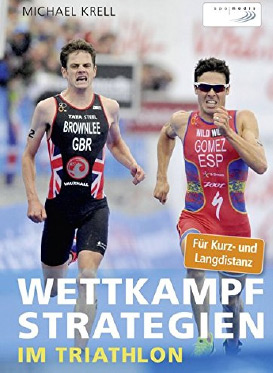Book publications
19,90 €
MAX OUT
Compared to German version additional chapters nutrition & race strategies and more athlete case studies.
17,90 €
The maximum principle
The maximum principle in triathlon - or how to get faster with less training.
19,95 €
For long distance
Triathlon training units for the long distance: the perfect preparation for newbies and experienced.
19,95 €
Workouts
In this book, Michael Krell presents the most efficient training units for professionals.
17,90 €
For working people
Strategies for training and shaping life with which working people can also achieve success.
19,95 €
competition
An extensive collection of strategies, tactics, instructions and tips for the competition
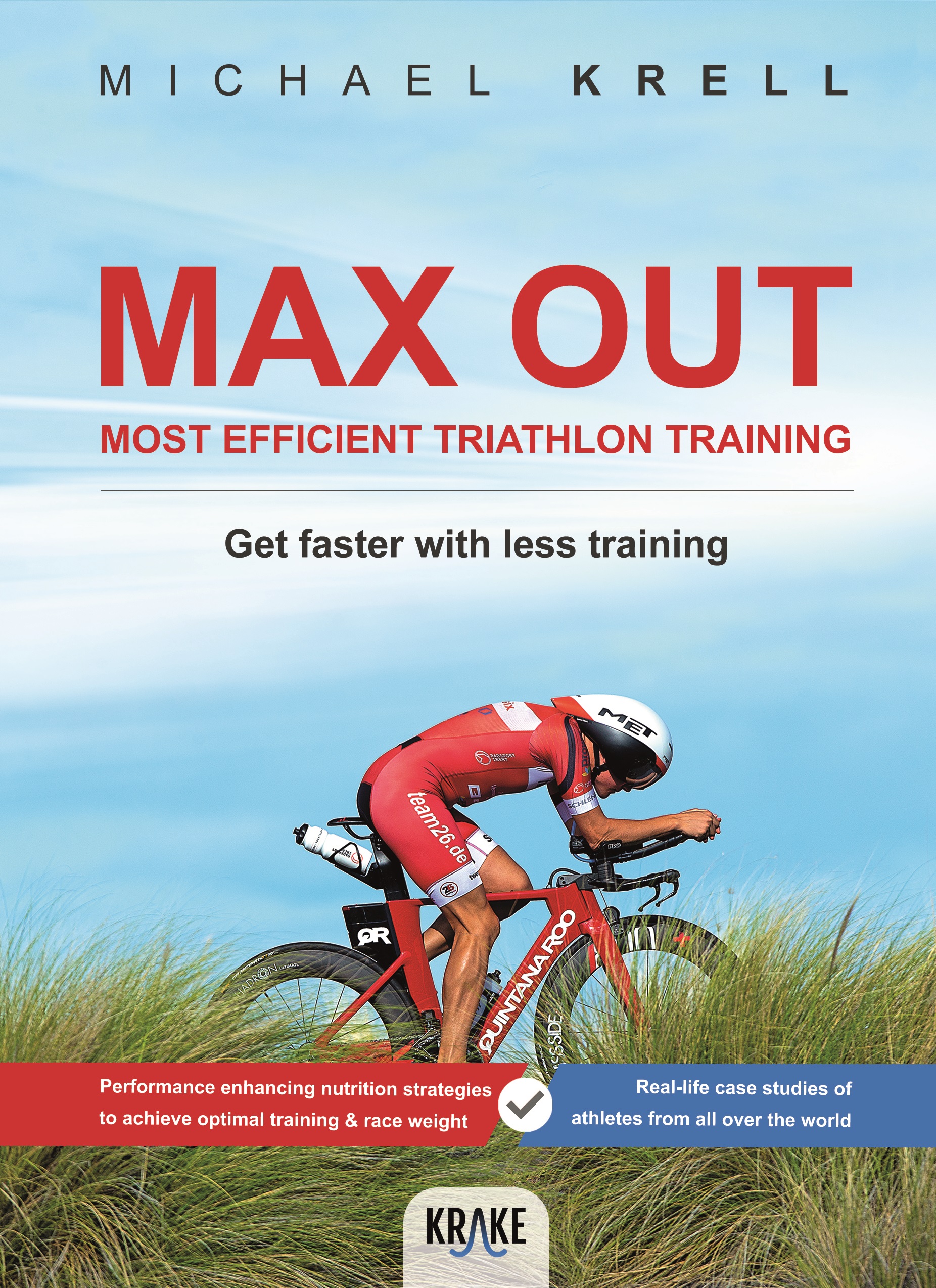
MAX OUT:
most efficient triathlon training
How does a triathlete working full time manage to break the 9-hour barrier twice at the Ironman World Championship in Hawaii on an average of just 10 to 12 hours of training per week, and even achieve a personal best of 8:24 in the Ironman Sweden? This is the question I'll be exploring in this book, in addition to exploring the approach used by some of the best age-group athletes in this sport. These athletes will show you how you can achieve maximum results with less training and more recovery time. This knowledge will help triathletes at all levels - from beginner to experienced. Step by step, we will examine the training principles needed to achieve the best possible results in the long-distance triathlon.
This book provides you with real-life cases of athletes who use this training approach, and then these principles are presented as practical and easy-to-implement training plans. Learn and benefit from the best age-group athletes in this sport through: - In-depth knowledge of efficient training principles to maximize your potential - Real-life case studies of athletes from all over the world - Extended chapter on nutrition strategies to achieve your optimum training / racing weight - training plans you can easily incorporate into your training schedule - pacing and nutrition strategies for your perfect long-distance race.
The maximum principle in triathlon
or how to get faster with less training.
How does a full-time professional triathlete with an average of 10-12 hours of training a week get under the 9-hour barrier twice at Ironman Hawaii and achieve a best time of 8:24 hours at Ironman Sweden? This is the question I pursue in this book and I will show how you can achieve maximum results with less training and more recovery. Triathletes of all levels benefit from the knowledge gained from this. The book deals step by step with the athletic abilities that are important to achieve the best possible results on the long distance, shows this with many examples of athletes who train in this way and summarizes the whole thing in practical and easily implementable training plans.
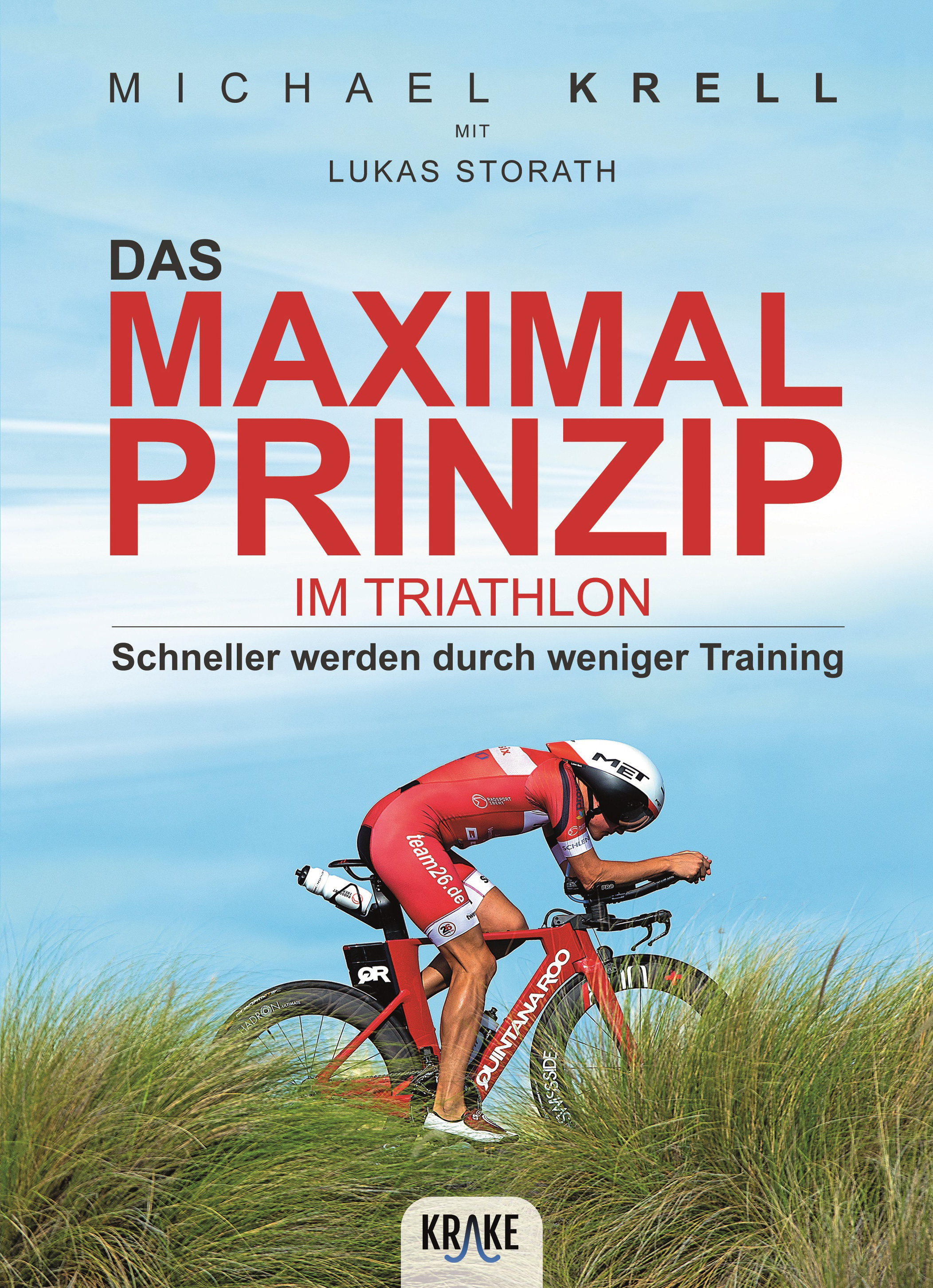
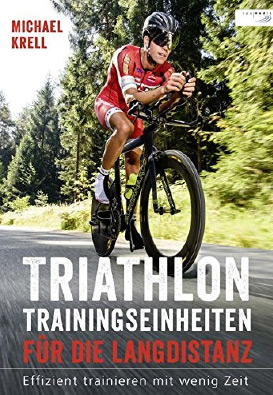
Triathlon training units for the long distance:
Train efficiently with little time
Triathlon is still a growing trend sport. At the Ironman Hawaii in October 2016, three German professional triathletes stood on the podium - following their example, more and more ambitious amateur athletes are trying their hand at the long distance triathlon. There you have to swim 3.8 kilometers, cycle 180 kilometers and run 42.2 kilometers. The preparation required for this is extensive - which makes it all the more important to train effectively and efficiently. In his new book "Triathlon Training Units for Long Distance" coach and successful author Michael Krell shows how this can be done.
Triathlon training sessions for professionals
Triathlon is a very time-consuming sport. Even at the popular sports level, athletes have to spend a lot of time training in the three individual disciplines. And almost all triathletes face the difficulty of having to reconcile their professional, family and social obligations with sport. You are often under time pressure and have to compromise on training - an unsatisfactory situation. Michael Krell now presents the most efficient training units for working people. Triathletes with a tight time budget can fully exploit their performance potential. The over one hundred units mostly last between 30 and 100 minutes and are intensive and competition-oriented. They not only include the classic triathlon disciplines swimming, cycling and running, but also athletic and strength training. Both beginners and advanced can train with these units at a high level.
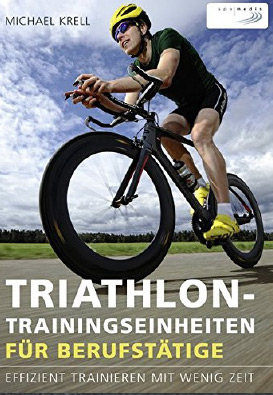
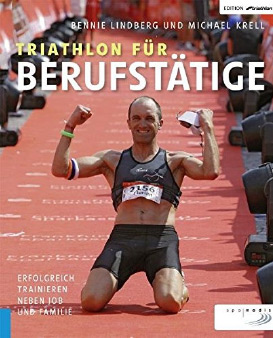
Triathlon for working people: Train successfully alongside your job and family
With its three individual disciplines, swimming, cycling and running, triathlon is already an elaborate sport on a popular level. Balancing the time-consuming training with work, family and friends is a great challenge for non-professional triathletes - after all, the hobby should not be a burden, but fun.
In this book, Bennie Lindberg and Michael Krell show strategies for training and shaping life with which even working triathletes can achieve considerable success without endangering their job or social life. For the first time, Lindberg and Krell's holistic approach takes into account not only the training but also the personal environment of the athletes and thus represents something completely new among training guides in the triathlon sector. In addition, this practice-oriented work not only includes the experience and knowledge of a professional triathlon coach and a successful triathlete but also lots of examples, stories and tips from other athletes.
Competition strategies in triathlon: For short and long distance
Triathletes invest an infinite amount of free time, energy and money in their hobby in order to be perfectly fit on the day of the competition. However, a good workout plan is only half the battle. In competitions, it is important to assert yourself and to keep calm, even when it is tight in the water or on the bike course and the adrenaline rushes through the body. It is all the more important that an athlete deals with the competition conditions in advance and starts with a strategy in order to be able to stay focused on the subject over three disciplines and two changes. Depending on the event and your own level, it is important, for example, to choose a suitable starting position, to adapt the pace to the course of the route, to see through the tactical games of the competition and to eat smartly. Triathlon coach and Ironman finisher Michael Krell presents an extensive collection of strategies, tactics, instructions and tips for the competition that guarantee perfect race preparation - and provides the first guide on this topic.
